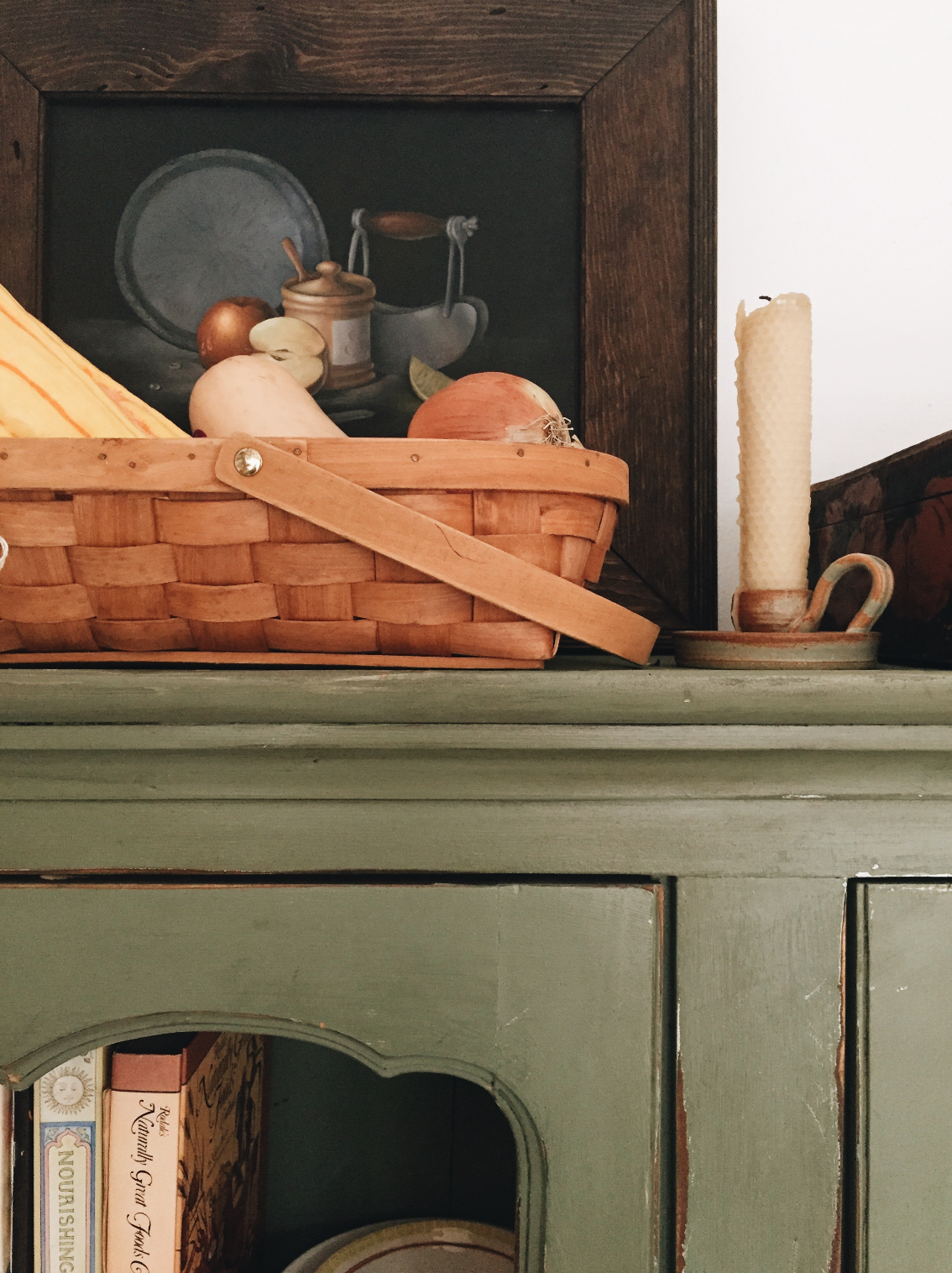I wanted to tell you a story today because it's a story I remind myself of often. It will require a little bit of back-story, and some details about my most formative years, but I will try my best to be succinct and clear and honoring because what the world doesn't need is another tell-all.
When I was seventeen years old I came home for a weekend from the summer wilderness camp where I was working. I was in the passenger seat of my parent's car and we were driving up the long driveway to our home in the wooded and beautiful Bucks County, PA, and just as the woods were clearing and the house was coming into view, my parent told me we were moving. They had been looking at property six hours north, a few miles from Canada, where they could buy a farm on two-hundred acres with cash after our home was sold in PA.
That's the short version. Sometime later—I can't remember exactly, but not long in my recollection, we all piled into our vehicle (all seven kids at the time and our parents) and made the trek northward. The trees began to grow shorter, the fields bigger, the air thinner, and the temperatures colder. It was the year after an ice-storm that had left most of that part of the country without power for weeks and the trees looked like someone had taken a scythe to them all at the same level—iced tips had grown heavy and broken them off. It looked desolate to me. I loved our home in PA. This place looked like a land headed into a deep, long frost, full of strange people with strange accents and dilapidated houses and shut down farms and cheap land. It looked less like a Promised Land and more like a place of mass exodus.
Somehow my parents had gotten connected with some folks who had also moved from Pennsylvania a few years earlier. They had no history of farming, sustainability, food preservation, healing the land, or any of the aspirations my parents also had, and yet they were doing it, one field, one animal, one jar of canned beets at a time. We pulled onto the dirt road leading to their home and I didn't know it then, but I was about to meet two people who never pretended to know where they were going, but showed me the way just the same.
We spent a few days with this family, looking at farms all over the county, and when we ended up buying one, it was less than two miles from this original homestead. They became our friends. They became our only friends. He was a musician, she was an artist (and neither of them your run of the mill either—both wildly talented from the art scene of Cincinnati). Their children worn linen and denim and bare feet and there was this wild freedom that existed in their home. It wasn't without restraint, that's not what I mean, but just this beautiful sort of room to stretch and grow and dialogue and think for yourself and always the word Gospel, which was a word I didn't understand as they used it. I knew the gospel as a thing old men in suits or young men with chic-tracks or old women with felt-boards used it, "Believe the gospel and ask Jesus into your heart," sort of way. But after the asking of Jesus into your heart happened, there seemed to be no use in my world for the gospel again.
But these folks talked about gospel as if it were a thing alive and real and for today, a thing that could change you today and today and today and today and tomorrow and tomorrow and tomorrow and forever. There was no end to the richness of this gospel of which they spoke. They used it as fluidly as they quoted Wendell Berry and talked about grass farming and creation care and this was before any of this was cool. They were just up here in the middle of nowhere on a few hundred acres trying to live faithfully in the context God had put them, and that's where I met them.
I have hundreds of examples to give you of how they became, for me, a bedrock of certainty. When my brother was killed, Paula was at our house immediately. Rick spent the morning on the phone with the organ donors. When my parents split, Paula listened to me cry and process. Rick helped my brothers learn the work of manhood wasn't limited to work of the hands but work of the heart. When I struggled with the theology of the church we all went to, Paula helped me parse it, process it, and always, always, always used the word Gospel in this strange way that still felt awkward and crumbly in my mouth. Rick was the first person who ever married the burning of creation care in me with the word of God—helping me see the creation mandate wasn't simply to marry and have babies, but to live on the earth as stewards, small-c-creators, subduers but not abusers. They are some of the deepest thinkers I know and without question, the hardest workers. Nothing is uninspected, no aspect of church, theology, politics, farming, culture, or art.
Eventually, many of you know the story, I left that place, disillusioned, disheartened, sure that what I understood to be the message of the Church was not something I was willing to stake my life on anymore. But the curious use of the word gospel never left me. There was something about the theology this family read that grabbed ahold of me, stuck to me, there was something of truth in this way of being. Vulnerable and true, faithful and humble, away from the three point sermons and clever acronyms to dictate how to date or how to commit or how to have a healthy church or how to do anything Christians were supposed to do. There was life in this way of thinking and I wanted it. I wanted it desperately.
That wanting led me to Texas and to a culture that uses the word Gospel ad nauseum, so commonly it's almost as if it's another word like taco or elevator or mushroom. Just a word we insert into every sentence in order to remind us of its great power—a power I once did not know it had and a power I am prone to still forgetting every day. But I have never forgotten this family who still lives on a couple hundred acres in upstate New York, whose farm has grown and still stayed small, whose children have spread their wings and flown, and at whose table I sat this past year talking while Paula canned beets at the end of summer.
Whenever I think about who I want to be when I grow up, especially as I am now the age Paula was when I first met her, I think about them. There are bits of the story that might change (dairy farming, upstate New York), but the overarching principles stay the same: faithfulness for the long haul in quiet, unseen, wild, difficult places.
I wanted to share this story for a few reasons, and I know it's long and I hope you've borne with me. More and more there is a felt urgency toward planting churches in the city. It seems every week another article goes up on the Big Name Blogs with ten reasons to live in the city, five reasons to plant in the city, twenty-five reasons why the city is better for your kids, and so on. And every time I read those articles, I feel a little ache inside, because the crossroads of my life happened on a remote farmstead in a town of 800 people in a place of mass exodus to The City in a state known mainly for its city. The trajectory of my life was altered in a profound way not by people who used clever acronyms or ten steps to anything, but who woke each morning, lit the wood stove, drank black fair trade coffee in the still dark morning, and who put one foot in front of another in a day of faithfulness. They are those of whom the world is not worthy and if I didn't tell you their names in this piece, you would never hear of them.
And that matters.
They matter.
I know, refugees and multi-cultural endeavors, and millions of people in big cities matter too, but people in small places matter too and the ripple effect of their lives can reach millions too. I said to Nate last night that I do not want to think highly of myself, but I am here and writing this today and being read by you and thousands of others because of their faithfulness. Because the word Gospel was not forgotten or overused but a real, living, life-changing word and it changed mine.
The Internet is a beautiful thing (or can be) and I don't know where you're reading this from today. Perhaps you live in a city and have a quiet pulsing desire for ministry in the rural context. Perhaps you're already in a rural context and feel at times like your ministry there is void or small or unnoticed. Or perhaps you're of the "city is better" mindset and can't see the worth of rural ministry because the numbers don't add up. I don't know. I guess I just wanted to say that someone sees you. Someone sees your faithfulness. Someone sees the faithfulness of those rural folks. And it matters. It mattered and matters to me. I am a life that was changed by it. I thank them for it regularly and they are humble and so it seems like no big thing to them, but to me, it matters. To God, it matters. And if it matters to someone, it should matter to everyone, however insignificantly, it should matter.




















